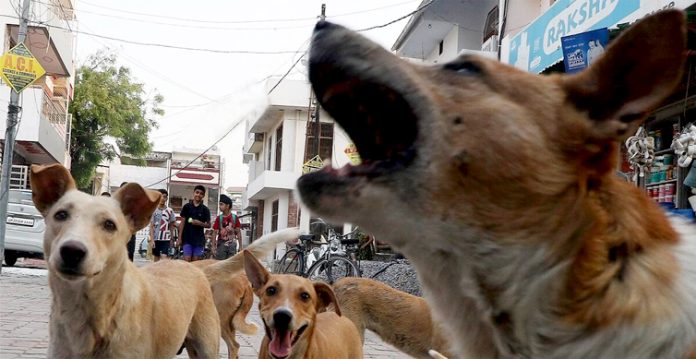Two resident doctors and three others have been injured in an attack by a stray dog here inside the King George’s Medical University (KGMU) campus.
This was the 16th major dog attack case in Uttar Pradesh’s capital in the past year. The university authorities informed Lucknow Municipal Corporation (LMC), which then sent a team to the campus and found that the dog had died.
While the reason for death is unknown, officials said that the dog was suffering from rabies. KGMU officials said that the dog suddenly attacked people outside the radiology department on the campus bit two resident doctors, two paramedical staffers, and an attendant of a patient.
Also Read: Telangana HC questions GHMC on why stray dogs still remain on streets
The victims, Sushma Yadav, and Sanjay Gupta, both medical personnel were rescued by other staff and taken to the infection prevention unit of the university where they were discharged after being administered antibodies for rabies and vaccines along with first aid.
Sushma Yadav told reporters: “I was coming outside from the radio diagnostic department and suddenly a stray dog came and bit me on my right leg. I cried out loud and tried to shoo off, but it again attacked my right hand.”
She was left with a two-inch long open wound on her right leg while Sanjay Gupta had a one-inch gash on her left leg.
KGMU spokesperson Sudhir Singh said, “After the incident, I informed LMC to catch the dog but before the team came it was found dead.”
Chief Veterinary Officer, LMC, Dr. Abhinav Verma said, “The canine was suffering from rabies. The disease makes dogs aggressive and they die within a week of getting infected.”
The city veterinarian also said that rabies seems to have made the dog restless, aggressive, and ferocious.
Dr. Rajneesh Chandra, a vet, said: “The victims need to be given antibodies for rabies as well as anti-rabies vaccine as the virus in humans directly attacks the nervous system which leads to paralysis or fatality.”
(This story has been sourced from a third-party syndicated feed, agencies. Raavi Media accepts no responsibility or liability for the dependability, trustworthiness, reliability, and data of the text. Raavi Media management/ythisnews.com reserves the sole right to alter, delete or remove (without notice) the content at its absolute discretion for any reason whatsoever.)


